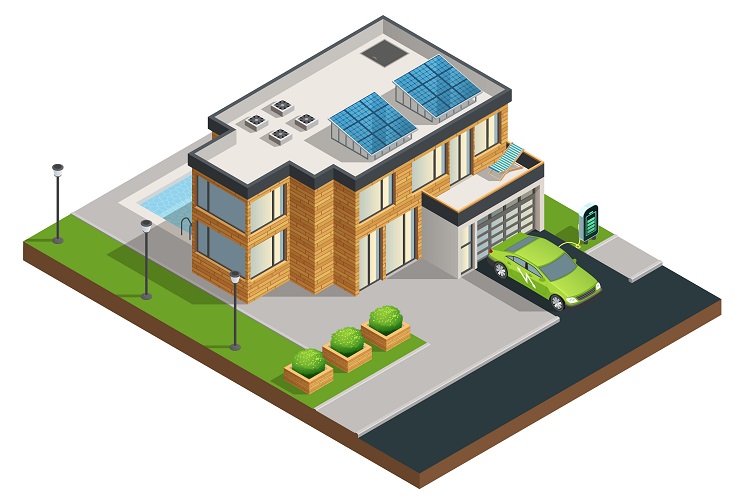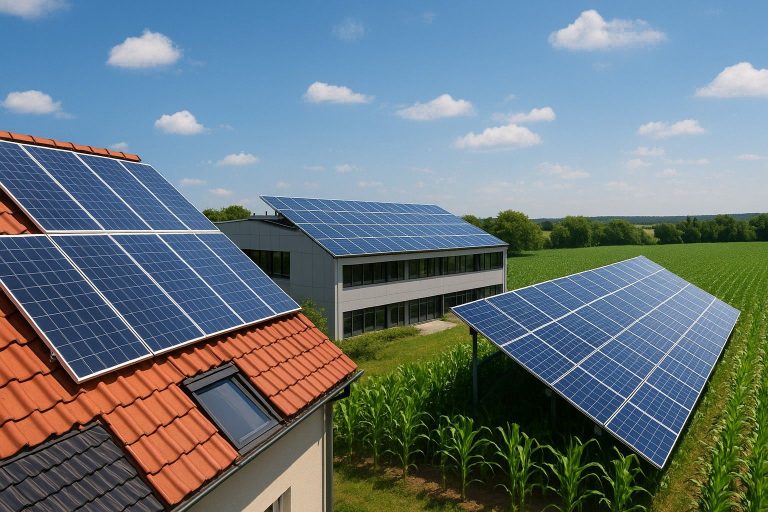At Rich Phytocare, we are dedicated to providing you with the most up-to-date and accurate information about solar panels. In this comprehensive guide, we will explore the various types of solar panels available in the market today. By understanding the differences and benefits of each type, you can make an informed decision when it comes to choosing the right solar panels for your specific needs.
Monocrystalline Solar Panels
Monocrystalline solar panels are known for their high efficiency and sleek design. They are made from a single crystal structure, usually silicon, which allows for greater electron flow. This means that monocrystalline panels can convert a higher percentage of sunlight into electricity compared to other types of panels. With their efficiency and attractive appearance, monocrystalline solar panels are a popular choice for residential and commercial installations.
Polycrystalline Solar Panels
Polycrystalline solar panels are another common option available in the market. Unlike monocrystalline panels, polycrystalline panels are made from multiple silicon crystals. This manufacturing process makes them more cost-effective, as it requires less energy and resources. While polycrystalline panels may have a slightly lower efficiency compared to monocrystalline panels, they still offer a reliable and affordable solution for harnessing solar energy.
Thin-Film Solar Panels
Thin-film solar panels are a lightweight and flexible alternative to traditional crystalline panels. They are made by depositing thin layers of photovoltaic material onto a substrate, such as glass or metal. Thin-film panels have the advantage of being highly versatile and can be integrated into various applications, including building-integrated photovoltaics and portable solar chargers. However, it’s important to note that thin-film panels generally have lower efficiency compared to crystalline panels, which means larger installation areas may be required to generate the same amount of electricity.
Bifacial Solar Panels
Bifacial solar panels are designed to capture sunlight from both sides of the panel, maximizing energy production. These panels have a transparent backsheet or glass on the rear side, allowing light to pass through and be absorbed by the solar cells. Bifacial panels can be an excellent option for installations where the panels are mounted on reflective surfaces, such as white rooftops or snow-covered ground. By capturing light from multiple angles, bifacial solar panels can generate more electricity compared to traditional one-sided panels.
Solar Thermal Panels
Solar thermal panels, also known as solar water heating systems, utilize sunlight to heat water for various applications. Unlike photovoltaic panels that directly convert sunlight into electricity, solar thermal panels absorb the sun’s energy to heat a fluid, which is then used for space heating, water heating, or pool heating. Solar thermal panels can be a cost-effective and environmentally friendly alternative to conventional water heating methods, reducing energy consumption and greenhouse gas emissions.
Conclusion
In conclusion, the market offers a variety of solar panel options, each with its own advantages and considerations. Monocrystalline panels provide high efficiency and a sleek design, while polycrystalline panels offer a cost-effective solution. Thin-film panels provide flexibility and versatility, and bifacial panels maximize energy production. Solar thermal panels, on the other hand, are specifically designed for heating water and can be a great addition to your renewable energy system.
When choosing the right solar panels for your needs, it’s essential to consider factors such as efficiency, cost, aesthetics, and specific requirements for your installation. By understanding the different types of solar panels available, you can make an informed decision that aligns with your energy goals and budget.
Remember, at Rich Phytocare, we are here to assist you every step of the way. Feel free to reach out to us for expert advice and assistance in selecting the ideal solar panels for your project.






